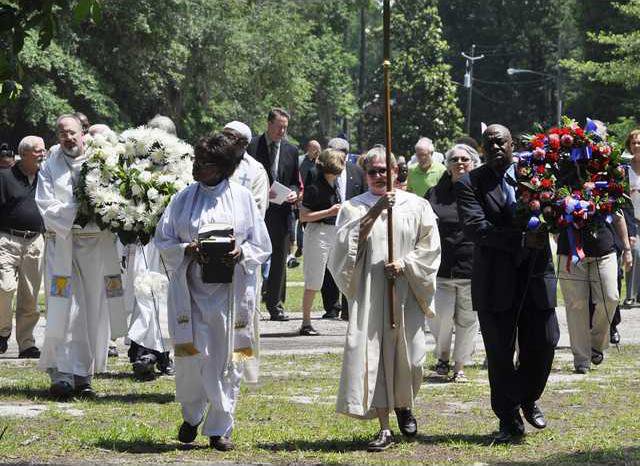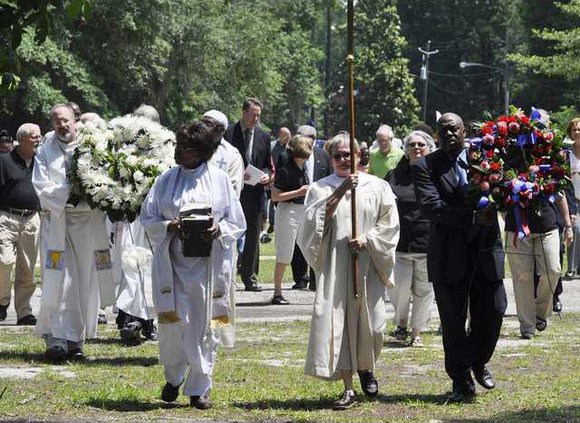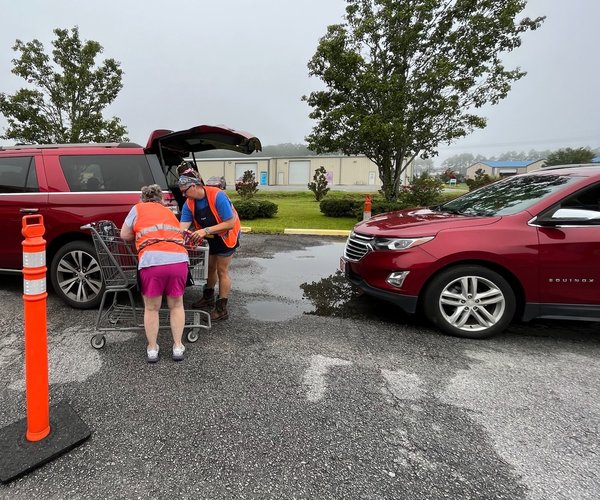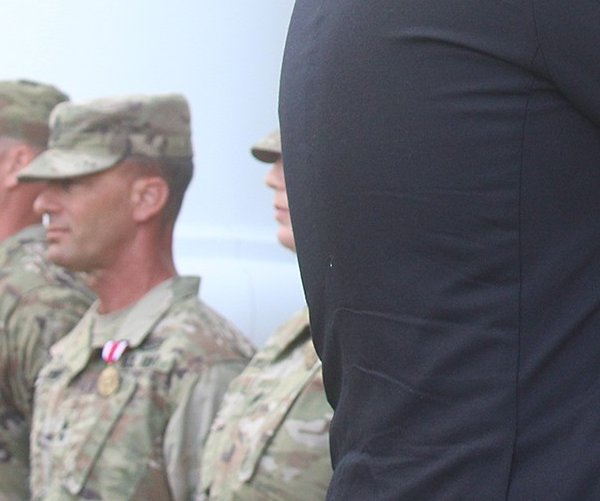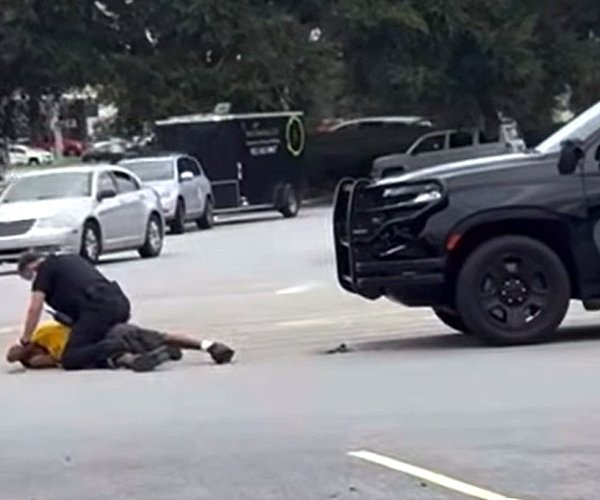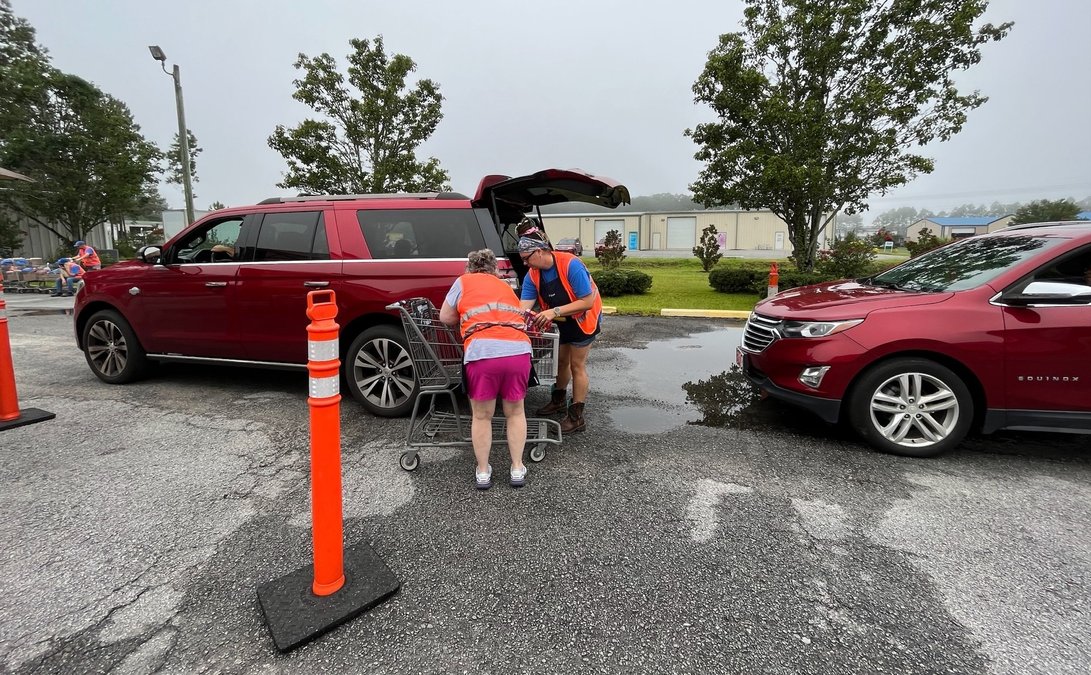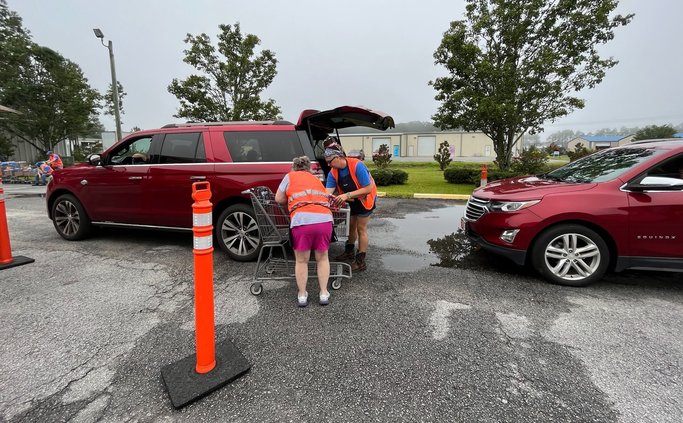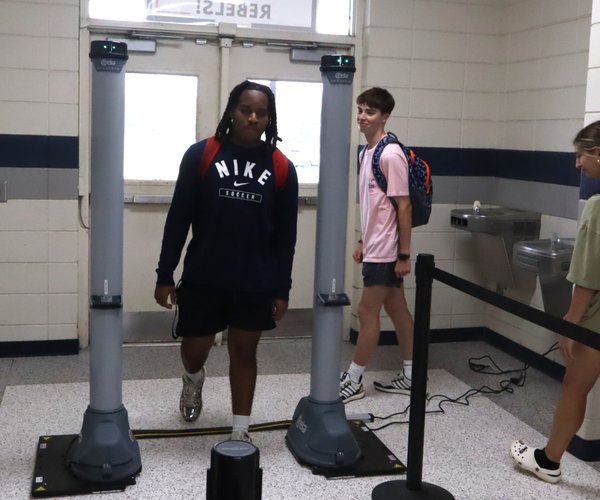benezer’s historic Jerusalem Lutheran Church honored part of its heritage Saturday — a part that has only recently been discovered.
Jerusalem Lutheran hosted a service to consecrate unmarked graves found outside the brick walls of the cemetery near the church. The graves, numbering at least 250, are believed to belong to soldiers, civilians and slaves who died before and during the Revolutionary War.
The cemetery has been the primary burial site for the town of New Ebenezer and the congregation of Jerusalem Lutheran Church since at least the mid-1740s. It is the resting place of generations of the area’s descendants, the Salzburgers, to whom many Effingham Countians can trace their roots.
"It’s a living history. It’s not just in a history book on a dusty shelf — it’s ongoing, even today," said Rev. John Barichivich, pastor of Jerusalem Lutheran Church. "The legacy is actually the people, not the place. It is the people of Effingham County that are the living legacy, and that is what we celebrate today."
The graves were discovered last year by the LAMARInstitute, an archaeological research organization that used ground-penetrating radar to survey the land around the cemetery. The study was commissioned by the Georgia Salburger Society, which, based on studies of Revolutionary War and church records, suspected that additional graves were on the church property.
"Particularly after the Battle of Savannah, we know a lot of the wounded and dying came here and died, and we assume they were buried here. We think it was significant that we found that out and we were able to consecrate this ground," said Keith Zeigler, president of the Georgia Salzburger Society.
Granite posts now mark the perimeter of the newly-identified burials. The site will have a historical marker telling the story of the discovery of the graves.
Members of Jerusalem Lutheran and its sister church, Holy Spirit Lutheran Church of Savannah, along with others from the community, came together for a church service, followed by a procession to lay wreaths at the cemetery. One wreath was placed on the site of the recently-found graves, and another in a wooded area on the opposite side of the cemetery containing numerous African-American graves.
"Certainly we are standing on holy ground," said Alderman Van Johnson, representing the city of Savannah at the ceremony. "I don’t know if we really realize the significance of what we’ve done this day, by making sure that we’re able to give people the proper rest in a proper place."
The first Salzburgers landed in Savannah in 1734 after a two-month trip across the Atlantic Ocean to escape religious persecution in their native home of Salzburg, which is in present-day Austria. The Salzburger exiles were directed by Gen. James Oglethorpe to their new homes along Ebenezer Creek.
The Salzburgers suffered many hardships, including death, sickness and failed crops from infertile soil. With Oglethorpe’s blessing, they moved their settlement to the banks of the Savannah River, where Jerusalem Lutheran Church sits today.
"They were expelled from their homes because of their faith, and they came here and endured much hardship, seeking religious freedom and economic opportunity," said Bishop H. Julian Gordy of the Southeastern Synod of the Evangelical Lutheran Church in America. "Other graves have the remains of people who were here in the colony of Georgia not of their own choice, but were torn from their families and their homeland by violence and force and kept in slavery."
Gordy encouraged the congregation to remember the bravery, sacrifice and faithfulness of those who had come before them. He said the people buried in the cemetery are a reminder "that we are called to be better."
"I wonder if our ancestors, who have been lying together in this cemetery for all these decades, might remind us of the oneness we have as human beings," Gordy said. "For, in the great treasure that is the kingdom of God, there are no divisions among us — no slaves, no free, no privileged or dishonored — we are all utterly beloved by God."
